|
|
|
The Confederate States of America was formed between December 1860 and May 1861, when 11 Southern states seceded from the United States. The division came about as a result of decades of sectional tension between the North and the South. After the election of Abraham Lincoln to the presidency in November 1860 and the attack on Fort Sumter in April 1861, the nation seemed inevitably headed for war. Most Northerners and Southerners believed the coming conflict would consist of one climactic, winner-take-all battle. Federal troops were enlisted for only 90 days, more than enough time, Northern leaders believed, to The Union's first goal was Richmond, Virginia, the newly designated capital of the Confederacy and only 100 miles from Washington, D.C. To reach Richmond, the army first had to capture Manassas Junction, an important railway junction 30 miles southwest of Washington. Troops set out for Manassas on July 16, 1861. So naive was the nation about the coming horrors that 200 or so private citizens from Washington, D.C., accompanied federal troops on the march. They hoped to witness and be entertained by this once-in-a-lifetime event. The two armies met in battle on the morning of July 21, 1861, along the banks of a small stream known as Bull Run. In a ten-hour contest, the green, inexperienced troops of both sides bravely fought and held their ground. By late afternoon, however, the federal troops, driven from the battlefield along with many of the sightseers, were in retreat. Hope of a quick and easy victory was a casualty of the day, along with almost 5,000 members from both armies and bystanders. Daylight faded from the once peaceful fields, bringing to an end not only the first major confrontation of the Civil War, but also the romantic way in which the majority of Americans had viewed the coming conflict. More |
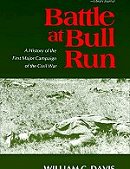 Battle at Bull Run: A History of the First Major Campaign of the Civil War The battle, was unique in the Civil War in that no general on either side had ever exercised high command in combat. July 21, 1861 would demonstrate that careers devoted to theoretical studies of warfare provided poor indicators of success in combat. |
| Joe Ryan Battlewalk Bull Run Youtube Channel JoeRyanCivilWar |
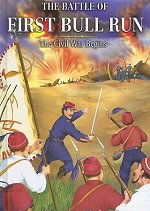 The Battle of First Bull Run: The Civil War Begins Three months after the shelling of Fort Sumter, Union and Confederate forces met for the first time in earnest combat. However, neither side was prepared at this early stage of the war, and confusion reigned on the battlefield |
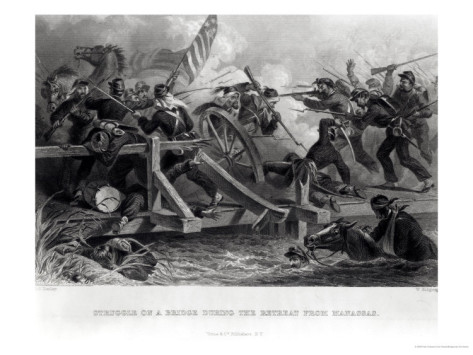
Struggle on a Bridge During the Retreat from Manassas, July 1861 24 in. x 18 in. Buy at AllPosters.com Framed Mounted |
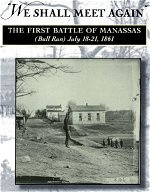 "We Shall Meet Again": The First Battle of Manassas (Bull Run), July 18-21, 1861 The First Battle of Manassas claimed the lives of approximately 878 soldiers and wounded another 2,489. With a battlefield stretching nearly five miles, 15,000 Union and 14,000 Confederate soldiers clashed for four fateful days, many of them young and terrified and receiving their first taste of a long and bitter war 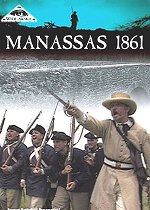 Manassas 1861 DVD |
Battles of the Campaign |
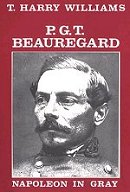 P.G.T. Beauregard Napoleon in Gray Beauregard often gets overlooked, he was never as beloved as Lee or Stonewall Jackson, but he was capable, the man had a sharp mind and Lee understood this, even if Jefferson Davis did not |
Campaigns of the Civil War Civil War Exhibits Timeline of the War State Battle Maps Civil War Navy Ships Civil War Summary Civil War Picture Album Women of the Civil War Confederate Commanders Union Generals Civil War Submarines |
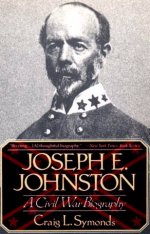 Joseph E. Johnston A Civil War Biography A biography of the public and private life of General Joseph E. Johnston, one of the most important Southern field commanders during the American Civil War |
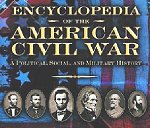 Encyclopedia of the American Civil War: A Political, Social, and Military History Definitive Reference Work, this volume, rich with over 500 illustrations, 75 maps, and 250 primary source documents, offers more than 1,600 entries that chart the war's strategic aims, analyze diplomatic and political maneuvering, describe key military actions, sketch important participants, assess developments in military science, and discuss the social and financial impact of the conflict. |
Kindle Available The Class of 1846: From West Point to Appomattox: Stonewall Jackson, George McClellan, and Their Brothers No single group of men at West Point has been so indelibly written into history as the class of 1846. The names are legendary: Thomas "Stonewall" Jackson, George B. McClellan, Ambrose Powell Hill, Darius Nash Couch, George Edward Pickett, Cadmus Marcellus Wilcox, and George Stoneman |
Kindle Available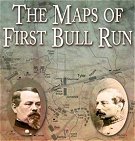 The Maps of First Bull Run: An Atlas of the First Bull Run (Manassas) Campaign, including the Battle of Ball's Bluff, June-October 1861 The Maps of First Bull Run breaks down the entire operation (and related actions) into numerous map sets or "action-sections" enriched with more than fifty full-color original full-page maps. These cartographic originals bore down to the regimental and battery level and include the march to and from the battlefield and virtually every significant event in between. |
Kindle Title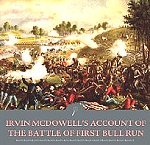 Official Records of the Union and Confederate Armies: General Irvin McDowell's Account of the Battle of First Bull Run Irvin McDowell was a career American army officer, famous for his defeat during the First Battle of Bull Run, the first large-scale battle of the Civil War. McDowell was promoted to brigadier general in the regular army on May 14, 1861, and given command of the Army of Northeastern Virginia, despite never having commanded troops in combat. |
Kindle Available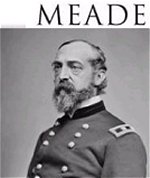 Meade: Victor At Gettysburg Meade took command only hours before his forces stumbled upon Robert E. Lee's Confederates at Gettysburg, Pennsylvania, in 1863. He led his men to victory in one of the most famous battles in history, but Meade was soon embroiled in political battles with fellow generals and Washington politicians |
Kindle Available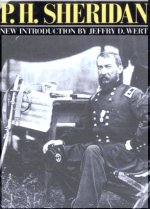 Personal Memoirs of P.H. Sheridan, General United States Army Philip H. Sheridan earned the enmity of many Virginians for laying waste to the Shenandoah Valley. His date and place of birth is uncertain, but he himself claimed to have been born in New York in 1831 |
Kindle Available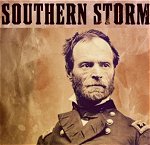 Southern Storm Sherman's March to the Sea The destruction spanned more than sixty miles in width and virtually cut the South in two, disabling the flow of supplies to the Confederate army. He led more than 60,000 Union troops to blaze a path from Atlanta to Savannah, ordering his men to burn crops, kill livestock, and decimate everything that fed the Rebel war machine |
Kindle Available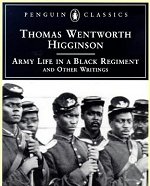 Army Life in a Black Regiment: and Other Writings In 1862, Thomas Wentworth Higginson was commissioned as a colonel to head the first regiment of emancipated slaves. A Civil War memoir written by an abolitionist, this text is the stirring history of the first regiment of emancipated slaves formed to fight in the Civil War |
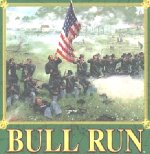 Battleground 7: Bull Run July 21, 1861 The earliest large-scale engagement of the Civil War, the First Battle of Bull Run found J.E. Johnston's outnumbered Rebels fighting a desperate delaying action versus the powerful Union army of Irvin McDowell. It was in this battle that General Thomas J. Jackson earned his famous nickname "Stonewall" |
 Civil War Battles Campaign Atlanta You decide the outcome of a duel between two determined generals in the American Civil War. It's 1864 and the Union forces are ready to make a final drive into the Deep South. General William T. Sherman advances to destroy the Confederate Army of Tennessee & capture the city of Atlanta. Confederate General Joseph E. Johnston planned on using Georgia's difficult terrain to inflict heavy losses |
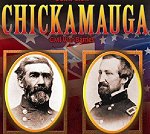 Campaign Chickamauga Civil War Battles A defining moment in the Civil War -- one that could have spelled victory for the South if things had been slightly different. At Chickamauga Creek near Chattanooga, TN there was a battle that earned it a new nickname: "River Of Blood." Chattanooga was a vital rail station at the time and had fallen to Union General Rosecrans |
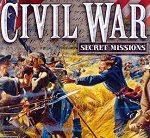 History Channel Civil War Secret Missions There are about a half-dozen different small arms types, but the Henry is the best for rapid repeating fire and least reloading. The shotgun they give you is useless: you must aim spot-on to affect an enemy, so why not just use the rifle? Grenades are useful at times. |
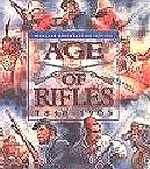 Wargame Construction Age of Rifles 1846 - 1905 Game lets you design and play turn-based strategic battles. You can create scenarios betwen years 1846 and 1905. You have complete control over all the units, and can customize their firepower, movement points, strength, aggressiveness, etc. Supports 1 or 2 players |
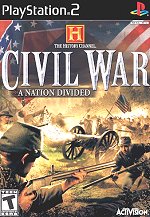 History Channel Civil War A Nation Divided Rally the troops and organize a counterattack -- Your strategic decision and talent as a commander will decide if the Union is preserved or if Dixie wins its independence |
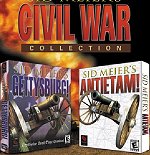 Sid Meier's Civil War Collection Take command of either Confederate or Union troops and command them to attack from the trees, rally around the general, or do any number of other realistic military actions. The AI reacts to your commands as if it was a real Civil War general, and offers infinite replayability. The random-scenario generator provides endless variations on the battles |
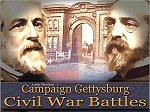 Campaign Gettysburg: Civil War Battles Campaign Gettysburg is simply the best of all the HPS Civil War games. While all of those are very good in their own right they simply do not compete with the level of detail presented here. Hundreds of scenarios and multiple OOBs are only the start, the best thing is the campaign game |
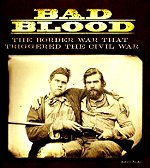 Bad Blood: The Border War That Triggered the Civil War In the years leading up to the Civil War, a bloody conflict between slaveholders and abolitionists focused the nation's eyes on the state of Missouri and the territory of Kansas. Told through the actual words of slave owners, free-staters, border ruffians, and politicians, Bad Blood presents the complex morality, differing values, and life-and-death decisions faced by those who lived on the Missouri-Kansas border |
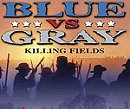 Blue Vs. Gray - Killing Fields Relive the most vicious fighting of the Civil War, in which General Ulysses S. Grant forcibly reversed the tide of the conflict by paying with the blood of thousands. It was a desperate time for the Union |
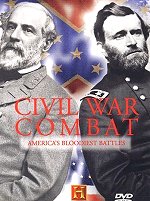 Civil War Combat America's Bloodiest Battles The violent mayhem of the hornet's nest at Shiloh, the valiant charge on the sunken road at Antietam, the carnage in the wheat field at Gettysburg, and the brutal fighting at Cold Harbor |
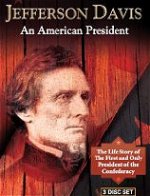 Jefferson Davis An American President One of the most outstanding statesmen of the United States during the first 60 years of the 19th century, he sacrificed everything to defend the South's position regarding the rights of the states and conservative constitutional interpretation. Against staggering odds he led the South and held it together in the bloody Civil War or War Between the States |
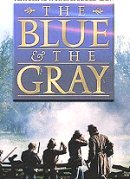 The Blue and the Gray The Complete Miniseries The Civil War proved a backdrop for this 1982 miniseries. Complete and uncut three disc set. Two families divided by the War Between the States. A Southerner caught when he becomes a war correspondent for the Northern newspaper. He finds himself where history's in the making from the Battle of Bull Run to Abraham Lincoln's assassination |
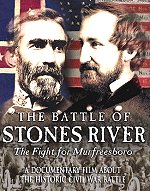 Battle of Stones River The Fight for Murfreesboro At dawn on December 31, 1862 the two armies clashed in a deadly struggle along the banks of Stones River. |
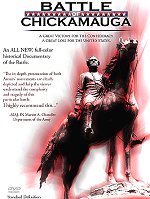 The Battle of Chickamauga Special Widescreen Edition Chickamauga one of the fiercest engagements of the American Civil War. Over a period of two days, more than 100,000 men struggled for control of the south's transportation hub, Chattanooga. |
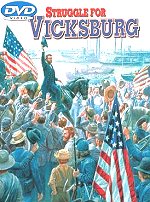 Struggle For Vicksburg Photography of the park with authentic battlefield illustrations and life-like paintings. Vicksburg's wartime role in the bloody and brutal conflict. |
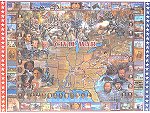 Civil War Historic 1000-piece Puzzle The famous faces and fearsome facts of the Civil War are captured in this 1,000-piece cardboard puzzle for Civil War buffs and serious puzzle fans. |
 Civil War Cannon Collectible Models and childrens playsets Miniature Collectible Civil War Cannon12 pound Civil War field cannon replica weapon collectible is a detailed 1/12th scale military caisson replica weapon collectible as used throughout the Civil War Childrens Cannon Set. Includes 6 gray cannon with black wheels that measure 4.5 inches long |
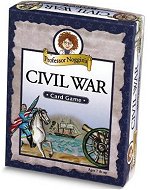 Professor Noggin's Civil War Trivia Game
|
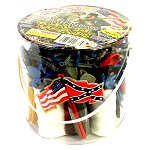 Civil War Soldier 102 Piece Playset
|
||||||
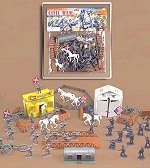 72 Piece Civil War Army Men Play Set 52mm Union and Confederate Figures, Bridge, Horses, Canon
|
 Monitor 21" Civil War Ship Wood Model Fully Assembled
|
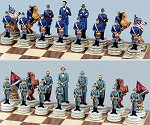 Civil War Chess Set Painted civil war chess set. Dimensions: Chess set pieces: 3-1/4" King's; 1-1/8" bases |
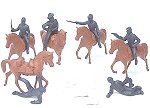 Civil War Union Cavalry: 25 Piece Set
|
Sources:
United States Military Academy
Library of Congress
National Park Service
|
Books Civil War Womens Subjects Young Readers Military History DVDs Confederate Store Civil War Games Music CDs |